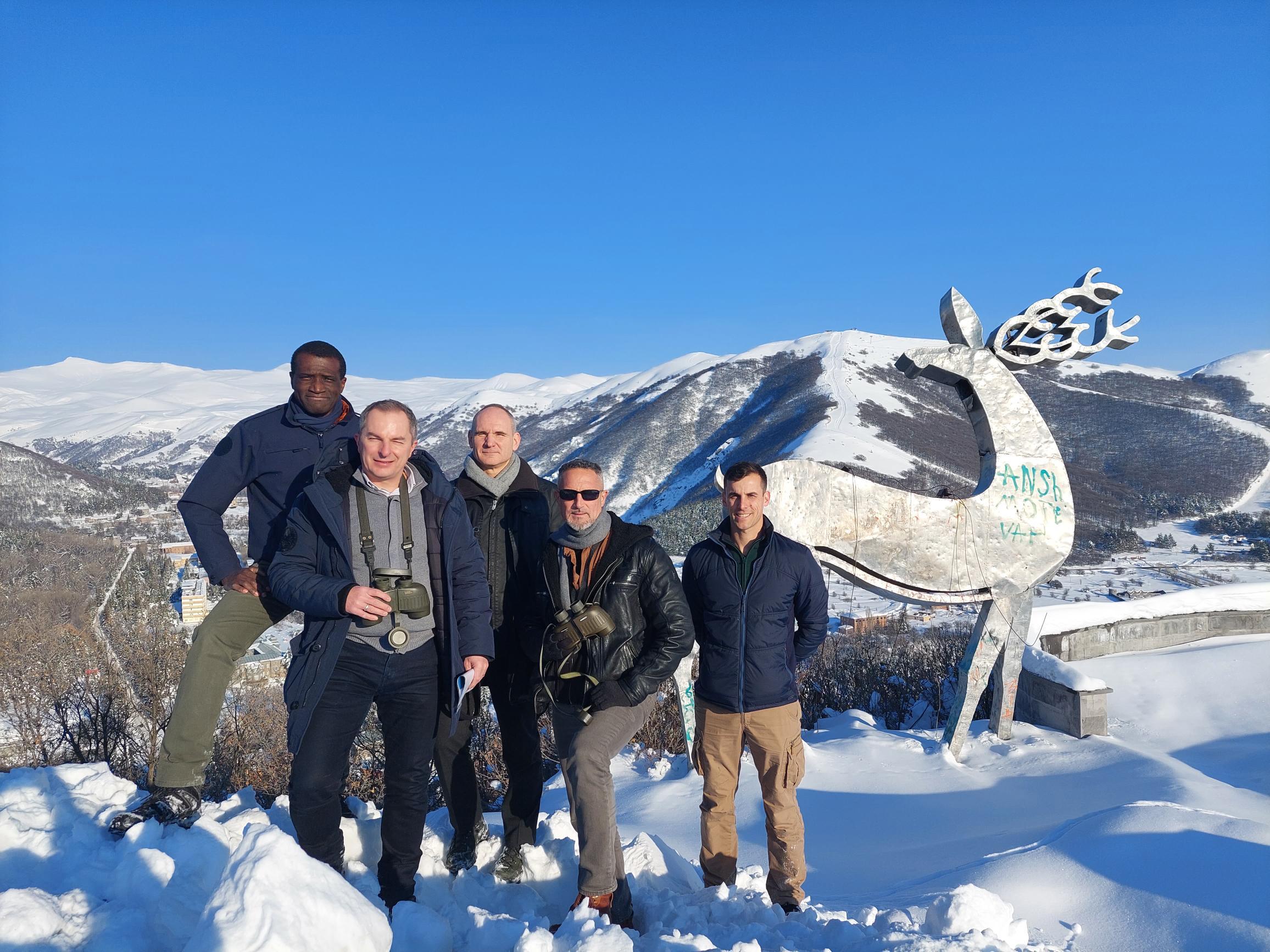EU reconnaissance on Azerbaijani-Armenian border raises espionage concerns Contemplations with Orkhan Amashov/VIDEO
The detention of a Czech national by Azerbaijan on the latter’s conditional border with Armenia on 3 February has raised some worrying questions as to whether the “reconnaissance” activities directly undertaken by the EU Mission in Armenia (EUMA) headquartered in Yeghegnadzor, known as Keshishkend in Azerbaijani, with six Forward Operating Bases, or through the use of its deployment area by the intelligence units of EU Member States, impinge upon Azerbaijan’s territorial integrity and sovereignty. If so, this beggars the question as to what this signals for the Baku-Yerevan talks and the thorny atmosphere of mutual trust between the sides.
There should be a special fuzzy term in the manual of the EU civilian mission stationed in Armenia for its employee or undercover intelligence officer linked to one of the Member States operating through its base that had the misfortune to be caught by Azerbaijani forces whilst engaged in reconnaissance outside the area of the mission’s mandate. “Accidental trespasser in foggy inclemency” is what I could think of, but something better fitting the bill more admirably will need to be found. This may be necessary, in light of the recent detention that took place on the Azerbaijani-Armenian border, if some concerns voiced in Azerbaijani media as to its probable particulars prove to be true.
On 3 February, a seemingly myopic Czech citizen was reported to have been detained near one of the checkpoints installed by Azerbaijan on the conditional border with Armenia. The report states that he passed through Armenian checkpoints and then infiltrated the Azerbaijani zone mined by Armenians before his detention. As to his current whereabouts and circumstances, the Czech side has already been duly informed.
The question that begs to be asked and answered is why on earth a Czech national needed to cross the conditional Azerbaijani-Armenian border in such a clandestine manner. How has he managed to traverse the mined territory? Due to the dearth of officially available information, we can only assume, and surmise without prejudice, for the sake of argument. There is nothing criminal about conjecture.
First of all, it is not commonplace, to put it mildly, for any European tourist to visit Azerbaijan via Armenia through the conditional border, risking mine mayhem. Furthermore, the border zone is not a touristic destination so far as one can tell, unless this unfortunate Czech is some foolish freak who drenched his wacky tobacco with some potent substance to observe the world from the glare of the Azerbaijani-Armenian border, with his drooping lids and pinpoint pupils misleading him as to locality. Alternatively, he could be an obsessive ornithologist or lepidopterist. These wild probabilities can easily be ruled out.
However, we cannot overlook the possibility of him being an interloper of some kind with connections to one of the EU member states’ intelligence units operating in the area via the aegis of the EU Mission in Armenia (EUMA), which is self-styled as a non-executive, non-armed civilian Common Security and Defence Policy (CSDP) Mission, headquartered in Yeghenadzor, known as Keshishkend in Azerbaijani, with Six Operating Bases deployed on the Armenian side of the border with Azerbaijan. In fact, this is not a mere musing, but a probability.

Nonetheless, as the Armenian media outlet Azatutyun reports, Czech Ambassador Peter Pirunchik ruled out the possibility that the detained person could be related to the EU observation mission. The headquarters in Yeghegnadzor (Keshishkend) voiced the same, stating that no member of the mission had mysteriously disappeared lately. However, this answer does not dismiss the possibility of him acting at the behest of one of the European intelligence units through the base of the mission’s deployment area.
The EU mission's declared mandate includes a) observing and reporting on the security situation along the Armenian side of the international border with Azerbaijan, b) contributing to humanitarian security in conflict-affected areas in Armenia, c) helping build confidence between Armenia and Azerbaijan, being self-described as an essential component of the EU’s efforts in supporting the regaining of peace in the region.
In view of Brussels’ long-term objective to move Armenia away from Moscow’s orbit and Yerevan’s growing expressed dissatisfaction with the security cushion provided by virtue of its membership of the Russia-led Collective Security Treaty Organisation, the EUMA has been largely perceived as forming part of the regional balance of power, rather than constituting an effective peacebuilding measure.
Plus, despite being described as a non-armed civilian mission, it is believed to be an open secret that the mission’s base is used for extensive reconnaissance missions, with many of its members being experienced former intelligence officers from EU Member states, with France as the most notable contributor.
In this vein, the recent visit by Brigadier General William De Meyer, Commander for external missions of the National Gendarmerie of France, reported to be linked with French intelligence, to the EU mission in Armenia, raised eyebrows in Baku, increasing concerns that Paris may be in the process of actively plotting to prepare Yerevan for further military action, encouraging the latter to launch an attack on the Azerbaijani positions gained subsequent to the 2021 May border clashes, in particular. And, in this context, the arrest of the unnamed Czech citizen on 3 February appears to be of increased relevance.

It goes without saying that the EU and its civilian mission are perfectly entitled to undertake whatever activities they consider appropriate within Armenia’s recognised sovereign borders. There is also nothing extraordinary in Brussels’s desire to augment its position in Armenia, thereby effecting the gradual recession of Russian influence. However, the concern in Baku is that this should not be achieved at the expense of Azerbaijan’s sovereign interests and to the detriment of direct peace talks between Baku and Yerevan.
At a time when Azerbaijan and Armenia found themselves perched on the bilateral track, with any trilateral format deemed ineffective, it is a question of increasing pertinence as to whether Brussels is doing enough to contribute to the success of the process. EU High Commissioner Joseph Borrell’s latest remarks accusing Baku of making territorial claims, the growing narrative within European circles, favouring the idea of emboldening Armenia vis-à-vis Azerbaijan in the South Caucasus, and the espionage claims surrounding the detention of the aforementioned Czech national on the conditional border on 3 February, make one wonder whether Brussels is a force for good in the region.








